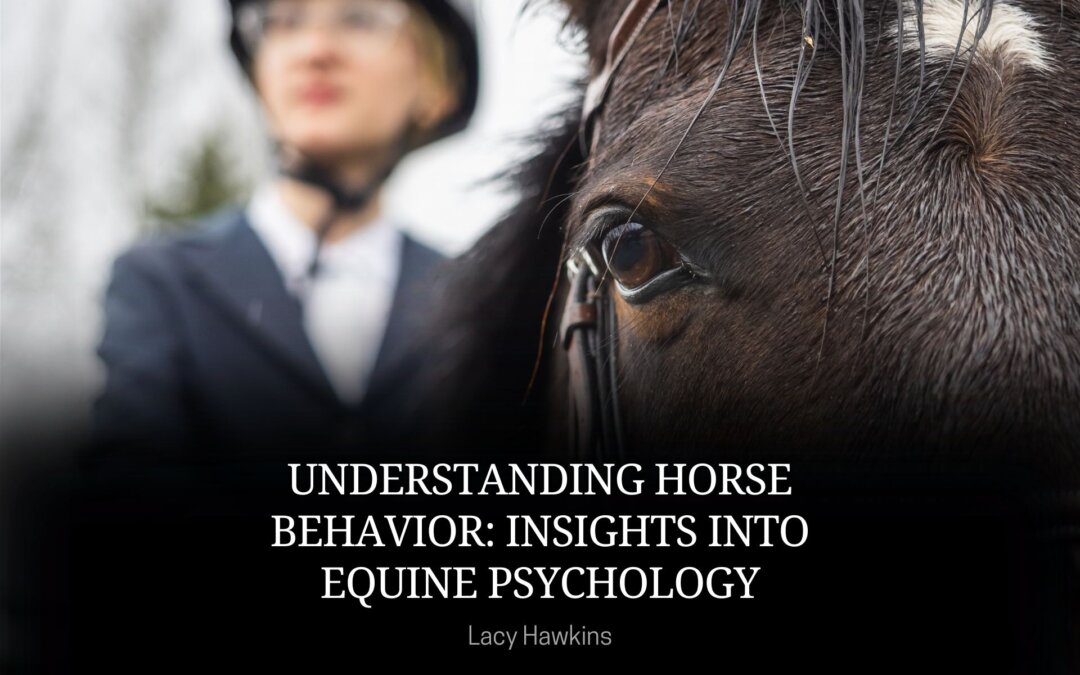Horses, majestic creatures that have captivated human hearts for centuries, possess a unique and intricate set of behaviors that are shaped by their evolutionary history and social dynamics. To truly connect with and care for these magnificent animals, it’s essential to delve into the realm of equine psychology, gaining insights into their behaviors, communication methods, and the factors that influence their actions.
Evolutionary Roots:
Horses are prey animals, and their behaviors are deeply rooted in their evolution. As herbivores, their survival depends on their ability to sense and react to potential threats. Their eyes are positioned on the sides of their head, allowing them to have nearly 360-degree vision. This wide field of vision helps them detect predators in the wild. Their acute hearing and sense of smell also contribute to their alertness.
Social Structure:
Horses are herd animals by nature. In the wild, they live in cohesive social groups with complex hierarchies. Understanding the dynamics of these hierarchies is vital when interacting with horses. They establish a pecking order to maintain order and safety within the herd. This hierarchy is not solely based on physical strength; it often relies on social skills and communication.
Communication:
Horses have an extensive and nuanced language of their own. They communicate with each other through body language, vocalizations, and even scents. Some common behaviors include:
- Body Posture: A horse’s body posture speaks volumes. Ears pinned back can signal irritation, while relaxed, forward-pointing ears indicate a calm state of mind. The position of their head and tail also conveys their feelings.
- Vocalizations: Horses make various sounds, including whinnies, snorts, and nickers, to communicate. Whinnies often signal excitement, while soft nickers can express comfort or affection.
- Grooming: Mutual grooming among horses strengthens bonds and relieves stress.
- Kicking and biting: These behaviors are used to establish dominance within the herd or as a means of defense.
Emotional Intelligence:
Horses are incredibly sensitive animals. They can pick up on human emotions and respond accordingly. If a rider is tense or fearful, the horse may become agitated. Conversely, a calm and confident rider can help the horse feel secure. This emotional sensitivity makes it crucial for humans to develop their own emotional intelligence when interacting with horses.
Training and Trust:
Understanding equine psychology is integral to successful horse training. Methods based on positive reinforcement and an understanding of how horses learn and perceive the world are more effective than outdated punitive techniques. Building trust and a strong bond with a horse is essential for productive training.
Environmental Factors:
Horses are highly adaptable, but their behavior is influenced by their environment. Factors like diet, exercise, and living conditions significantly impact their psychological well-being. Providing a stimulating and comfortable environment is key to a horse’s happiness.
To truly connect with horses and care for them properly, it’s crucial to grasp their psychology and behavior. Horses are not just majestic creatures; they are intelligent and emotional beings. By understanding their evolutionary history, social structures, communication methods, and emotional sensitivity, we can form a deep bond with them and provide the best care and training possible. So, the next time you find yourself in the presence of these magnificent animals, take a moment to appreciate their complexity and the beauty of their equine psychology.
